![Cover Live in Geneva, Switzerland (Remastered 2021) [Live]](https://storage.highresaudio.com/web/imgcache/269d6dbc086b22e88b1799d0df4f62ae/43dcc5-liveingene-master_500x500.jpg)
Live in Geneva, Switzerland (Remastered 2021) [Live] Sidney Bechet & Orchestre Pierre Braslavsky
- 1 Presentation de Lois Choquard (Remastered 2021) [Live] 01:04
- 2 Sweet Georgia Brown (Remastered 2021) [Live] 06:37
- 3 Summertime (Remastered 2021) [Live] 03:31
- 4 Weary Blues (Remastered 2021) [Live] 05:01
- 5 Tin Roof Blues (Remastered 2021) [Live] 03:37
- 6 High Society (Remastered 2021) [Live] 04:01
- 7 Muskrat Ramble (Remastered 2021) [Live] 03:49
- 8 Blues in the Air (Remastered 2021) [Live] 06:18
- 9 I Ain’t Gonna Give Nobody None o’ This Jelly-Roll (Remastered 2021) [Live] 06:36
- 10 Careless Love (Remastered 2021) [Live] 05:38
- 11 Wildcat Blues (Remastered 2021) [Live] 03:58
Info for Live in Geneva, Switzerland (Remastered 2021) [Live]
At the Paris Jazz Festival in May 1949 Sidney Bechet, who was formerly not very well known there, became the most outstanding and talked-about performer.
His remarkable musicality, paired with exceptional instrumental skills, the roundness of intonation and the generosity of his phrasing, and the form of contact between him and his public explains his fabulous success. During the one free day of the festival, he was invited to fly to Geneva, where, together with the Orchestra of Pierre Braslavsky he gave his one-time debut in Switzerland on 14 May 1949.
The accompanying musicians did a fine job supporting Bechet in this extraordinary concert, especially the rhythm section with Roger Kara, Michel Pacout, and the great bassist Eddie Bernard, who also had some good solo passages on their own.
The recording of this historic event was restored with great care to today’s listening standards.
Sidney Bechet, soprano saxophone
Orchestre Pierre Braslavsky
Digitally remastered
Sidney Joseph Bechet
the American jazz clarinetist, saxophonist, and composer, was born on May 14, 1897, in New Orleans, Louisiana. One of the first important jazz soloists, his recordings precede those of Louis Armstrong, three years his junior, with whom he would later play duets. Noted for well-conceived improvisations and a wide vibrato on both clarinet and soprano sax — due in no small part to his love of operatic tenors, especially Enrico Caruso — Bechet, though initially making the clarinet his primary instrument, may well have been the first well-known jazz saxophonist and the first great soprano saxophonist, giving it a prominent place in jazz. Bechet’s compositions include jazz and pop-tune forms, as well as extended concert works.
Unlike Louis Armstrong, who grew up, sometimes with his mother and a series of “stepfathers,” sometimes with his grandmother, and sometimes in reform school, Bechet, of Creole ancestry, grew up in a middle class environment. His father, Omar, was shoemaker and an amateur flutist; his four brothers pursued other musical instruments. His brother Leonard (a dentist) played trombone and clarinet. When eight-year-old Sidney gravitated toward the latter, Leonard made him a present of it.
Even in Sidney’s youth he mastered any instrument he tried; indeed, he had started out on cornet. But, John Chilton tells us in his biography, Sidney Bechet: The Wizard of Jazz (London: Macmillan, 1987) that George Baquet, a noted clarinetist, who had coached young Sidney from time to time beginning in 1907, found that Sidney, who had already developed his own fingerings for the instrument, took in everything Baquet had to say about “embouchure, reeds, mouthpieces, and legato and staccato playing, but any talk about reading music ...and studying harmonies seemed to be quite pointless.” Sidney could follow all that without studying chord names or poring over the written score. He remained a non-reader his entire life, depending solely upon his ear.
As part of his research for his book Mr. Jelly Roll, Alan Lomax recorded, in April 1949, first-hand recollections by Sidney’s brother Leonard Bechet, Albert Glenny, Johnny St. Cyr, Alphonse Picou, and Paul Dominguez, Jr., about early New Orleans jazz and Creole music. They recounted that older Creoles had avoided jazz and favored the polite music of their own Down-town dance halls, just as they spoke French or their own patois and attended plays in French in order to maintain their culture. Alphonse Picou was a good clarinetist, Leonard Bechet relates, but he played a cooler “High Society,” not “hot” jazz. Creole society wanted “respectful,...not jazz, [but] nice, music,” so its musicians hesitated to play jazz, the music of “rough, ignorant,... Up-town” New Orleans.
So Sidney and his family performed waltzes, mazurkas, polkas, quadrilles, and schottisches. But the jazz he heard in street bands as a boy and the syncopated music of Up-town dance halls and the brothels of Storyville fascinated him. He played clarinet in the Young Olympians and was so good that Bunk Johnson, the famous cornettist, invited him, sometime between 1911 and 1913, to play in his own Eagle Band, which played dance halls, parties, and picnics, and soon Sidney was featured by some of the top combos in the city. In 1914, he joined Bill Johnson’s New Olympia Band, and played alongside the legendary cornettist Joe “King” Oliver, with whom he later regularly played pool.
Eventually, the Up-town people played so well that they filled the halls, and the Creoles began to mix their music with jazz. According to Leonard, Sidney “learned you had to play real hard when you played for Negroes...and when you played with Negroes.” You had to have “that drive,... like they’re killing themselves.” Liking Bechet’s music, the tough pimps of the community protected him from its dangers, one pimp, in particular, making sure that Sidney dressed well by buying him expensive clothes.
At the age of nineteen, Bechet left New Orleans for Chicago with pianist Clarence Williams. In 1918 he joined Lawrence Duhé’s band, which included Lil Hardin (later to be Louis Armstrong’s wife) as pianist, and “King” Oliver. For Duhé, Sidney was “the featured hot man.” By then he had already played with many traveling shows, but his career was launched in 1919 when conservatory-trained, African-American composer-conductor Will Marion Cook (memorably portrayed in Josef Škvorecký’s novel, Dvořák in Love) asked Sidney to join his Southern Syncopated Orchestra for a performance in London. There, Bechet met the eminent Swiss conductor of the Ballets russes, Ernest Ansermet, famed for his performances of Ravel and Stravinsky.
Bechet’s temper was legend: in September of 1922 he was deported from England, after being arrested for a brawl with some women in a London hotel room. It was not the first (or last) time he was in difficulties because of a battle with or about a woman. In December 1928 in Paris, he had a confrontation over a woman with banjoist Gilbert “Little Mike” McKendrick at Bricktop’s (Ada Smith’s) café. When Bechet later shot at McKendrick, missing and wounding some bystanders, he was arrested and deported from France.
In 1924 Bechet recorded with Louis Armstrong and the “Clarence Williams Blue Five.” In 1925 he joined Claude Hopkins’s band, which accompanied Josephine Baker. In Paris, London, then the United States, he played with Noble Sissle’s group (“Loveless Love,” “ Polka Dot Rag,” and “Dear Old Southland” were some recordings that came of that association). The short-lived New Orleans Feetwarmers, formed by Bechet and his friend, trumpeter Tommy Ladnier, made some recordings in 1932 and had a few dates at New York’s Savoy Ballroom, but when its gigs dried up, the two went into the dry cleaning business. The Southern Tailor Shop had jam sessions in its back room, but it did not last long either. In 1934 Sissle asked Bechet and Ladnier to join his band. Bechet accepted, but Ladnier remained in the tailor shop; when Bechet went back to visit, the shop had disappeared.
Four days after a March 3rd 1940 benefit for the California migrant workers, folksinger Josh White assembled a trio that included bassist Wilson Myers and Sidney Bechet, clarinet, for one of his first recordings for the two-year-old Blue Note label, a recording designed for the white listener for whom jazz was serious, not dance, music. In a 1950 interview with British music critic Dennis Preston, White (who had also started out in his career playing with pianist Clarence Williams) opined that like his own Sidney Bechet’s music overlapped the categories of jazz and folk. In contrast to the then-new genre of bebop (which he disliked), he said, “Bechet’s music — that’s folk. Like my own music, it isn’t confined to any one thing. There’s a lot that sounds like Hungarian gypsy in Sidney’s playing” (quoted in Elijah Wald’s Society Blues, page 174.)
In the Josh White’s hit “Careless Love,” recorded as part of the 78 album, Harlem Blues, Bechet’s accompanying clarinet is quite discreet behind the vocal, but comes to the fore in when it solos. “Milk Cow Blues” from that same album starts out with Bechet on the soprano sax, but switches to clarinet to fit better with White’s tunings and against Myers’s bowed bass.
Bechet was one of the first jazz musicians to be appreciated by classical audiences and critics and to be rated on a par with Louis Armstrong by the New Orleans jazz aficionados, not to mention by Duke Ellington (whose lead alto sax player, Johnny Hodges, had, in his teens, studied with Bechet). Ellington said that Bechet was “the very epitome of jazz.... [E]verything he played in his whole life was completely original. I honestly think he was the most unique man ever to be in this music.”
Bechet appeared on several radio shows associated with Alan Lomax, such as the one with Sonny Terry, Brownie McGhee, Woody Guthrie, Hally Wood, Pops Foster, and Cisco Houston and the Coleman Brothers, on a Columbia Broadcasting System program (March, 10 1947), Hootenanny: A musical carpet of American folk music, hosted by John Henry Faulk, written and directed by Alan Lomax, and announced by Bill Rogers. It is reproduced on “Folk Music Radio” (Radiola series 16, release 133) and can be found in our library, VIA-308. (3-10-47).
On April 19, 1941, at RCA Studios on 24th St, in New York City, in an early instance of overdubbing, Bechet recorded the “Sheik of Araby.” He tells us (in the liner notes of George Hoefer) that he “started by playing ‘The Sheik’ on piano, and played the drums while listening to the piano. I meant to play all the rhythm instruments, but got all mixed up and grabbed my soprano, then the bass, then the tenor saxophone, and finally finished up with the clarinet.” Bechet also worked on recording and concert projects with the Chicago jazz pianist and vibraphonist Max Miller in 1944, 1946, and 1953, but those sessions, part of the Max Miller archive, have never been released.
In 1945, Bechet moved to 160 Quincy Street, in Brooklyn, New York, and began to teach music. Bob Wilber, then still in high school, became Bechet’s star pupil, learning both clarinet and soprano sax, and when Wilber finished high school, he moved into the house. In 1981 Wilber and his wife, soprano Pug Horton, formed a sextet, the Bechet Legacy, to continue the tradition.
Bechet relocated to France in 1950 and married Elisabeth Ziegler (whom he had met in 1928) in Antibes in 1951. Much of his later life Bechet spent in France, his affection for that country being reflected in such titles as “Petite fleur,” “Rue des Champs Elysées,” and “Si tous vois ma mere,” while “Quincy Street Stomp” clearly refers to his Brooklyn days.
Shortly before his death in Paris on his 62d birthday, May 14, 1959, Bechet dictated his autobiography, Treat It Gentle (London: Cassell, 1960). His influence extended far: among the existentialists of Paris, he was le dieu; the British poet Philip Larkin wrote an ode to Bechet in The Whitsun Weddings; Sugar Blue, the well-known harmonica player, claims he took his name from Bechet’s recording, “Sugar Blues”; Hermann Hesse, exposed to jazz and its world in the music and person of Bechet in the 1920s, may have used him as the prototype for the saxophonist, Pablo, in his novel, Steppenwolf; and Woody Allen, a clarinetist himself, refers often to Bechet in his 1997 documentary, Wild Man Blues and named one of his children after him. (by Peter Stone)
This album contains no booklet.

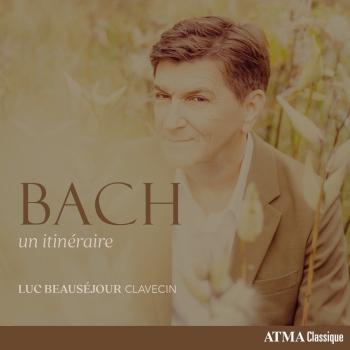

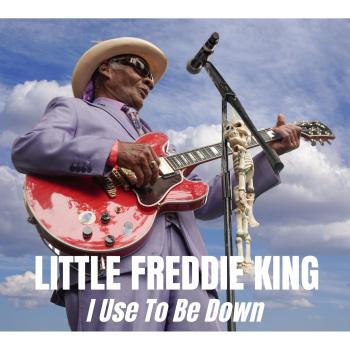
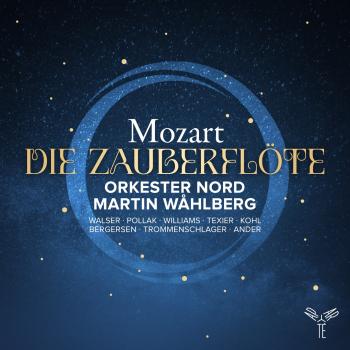
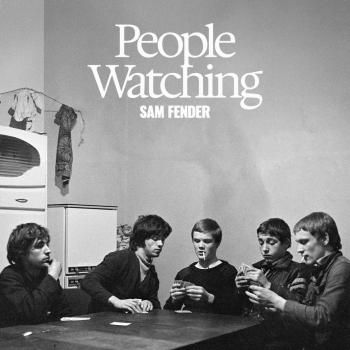
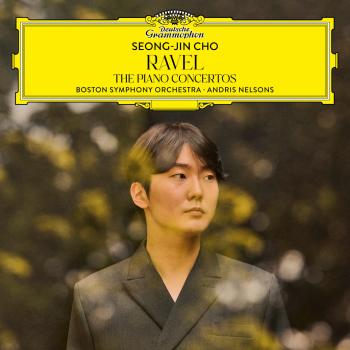
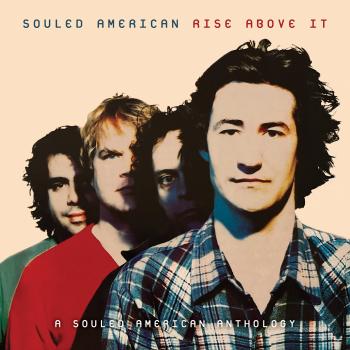
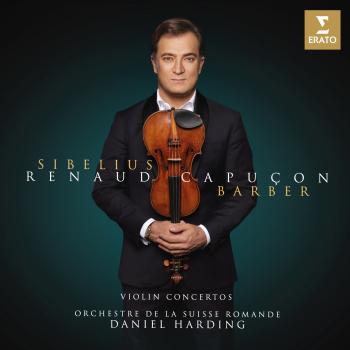
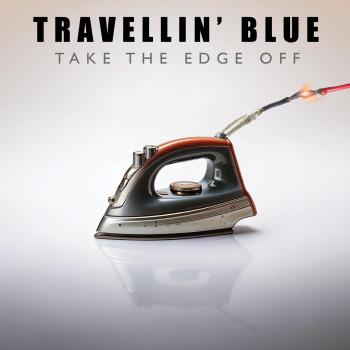
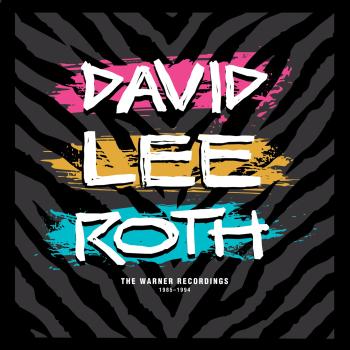
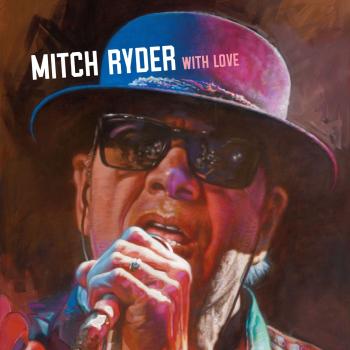
![Cover Live in Geneva, Switzerland (Remastered 2021) [Live]](https://storage.highresaudio.com/web/imgcache/269d6dbc086b22e88b1799d0df4f62ae/43dcc5-liveingene-master_350x350.jpg)